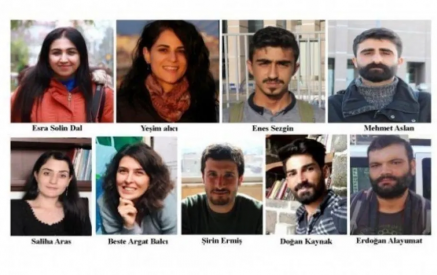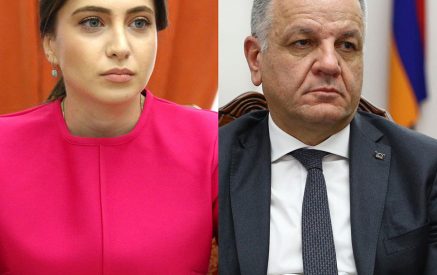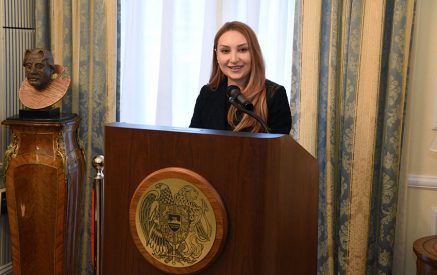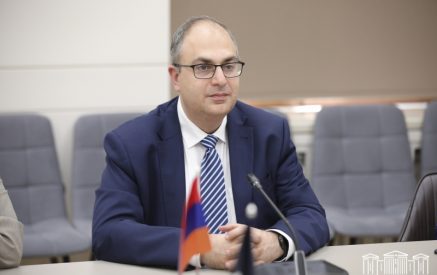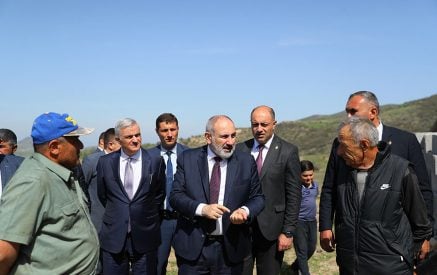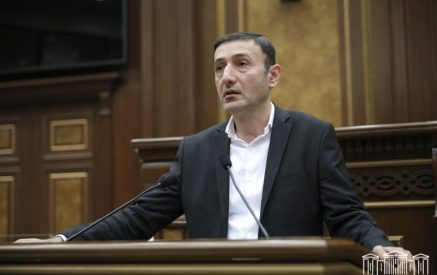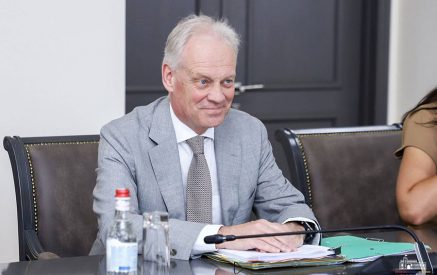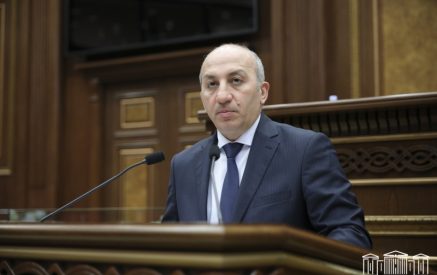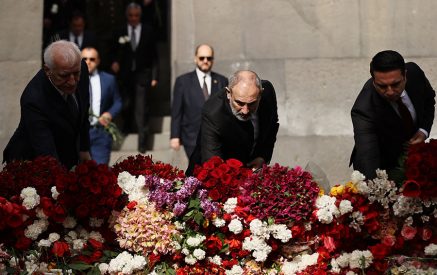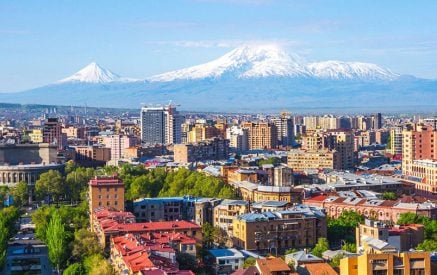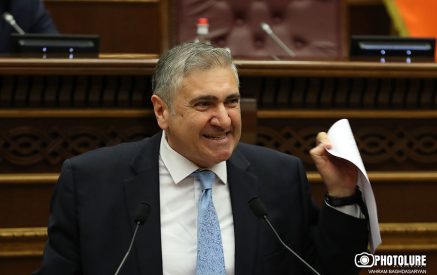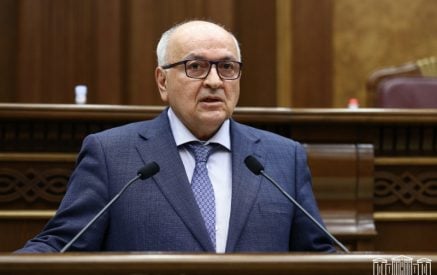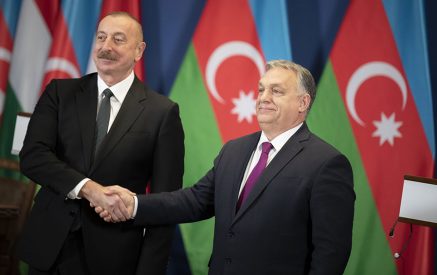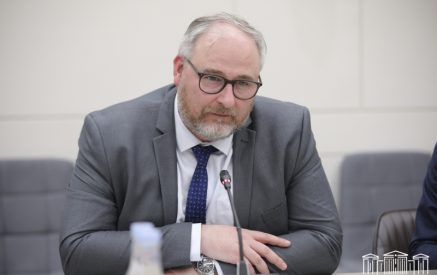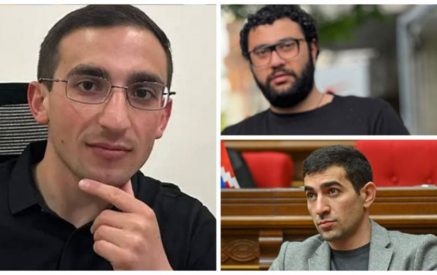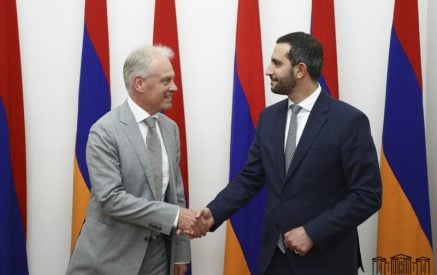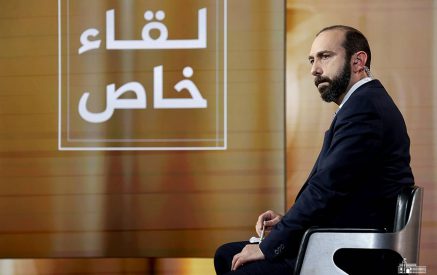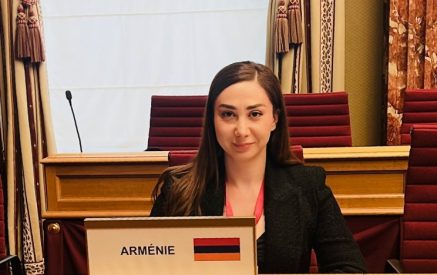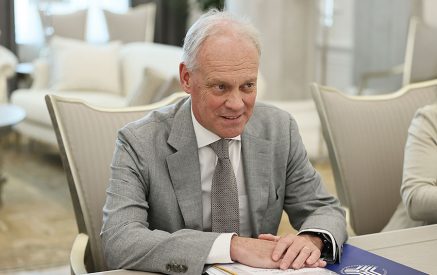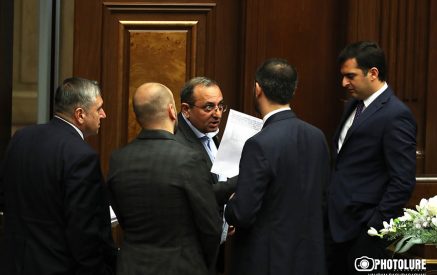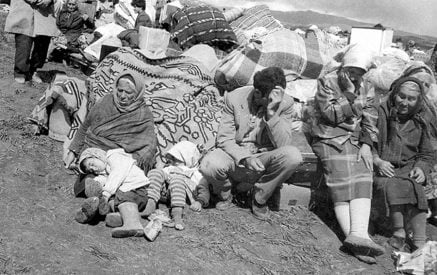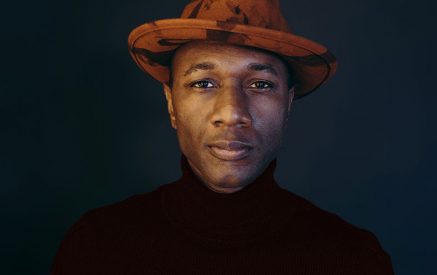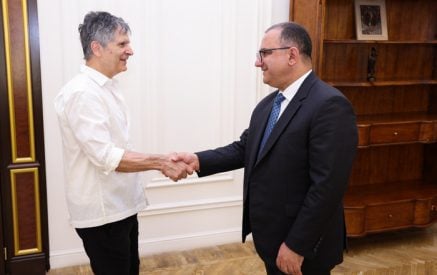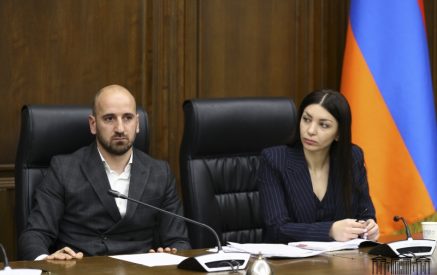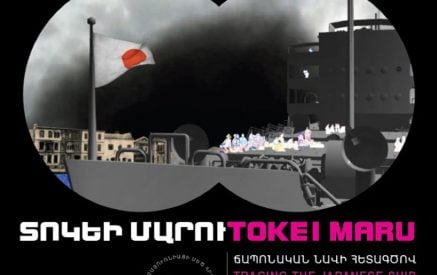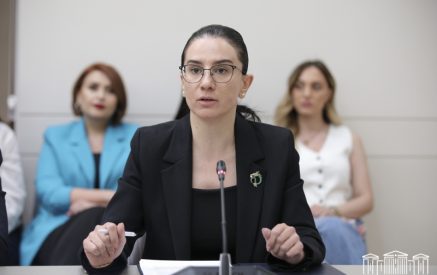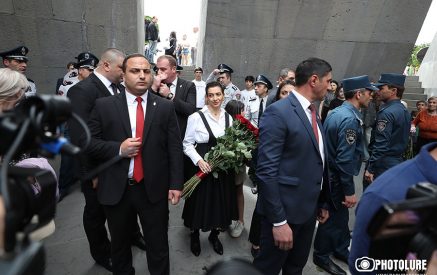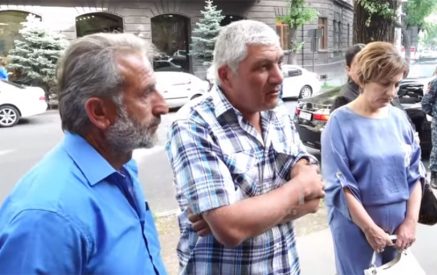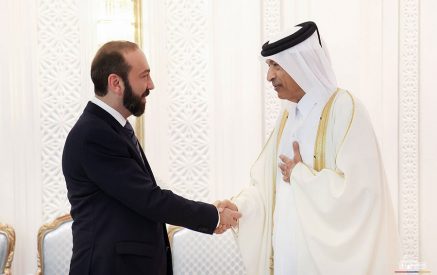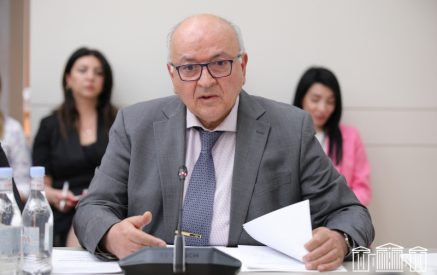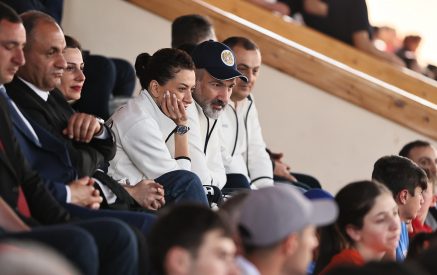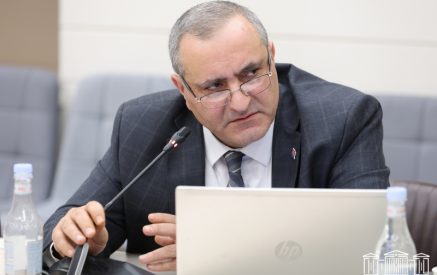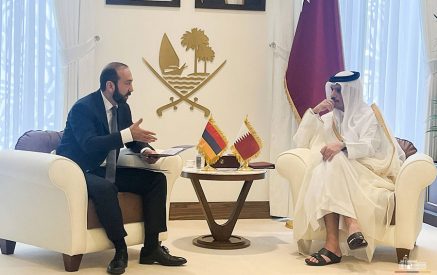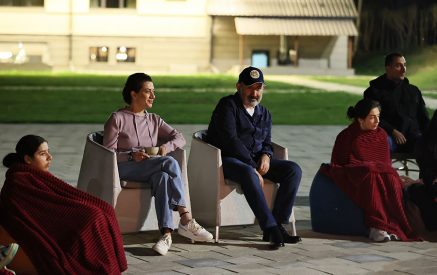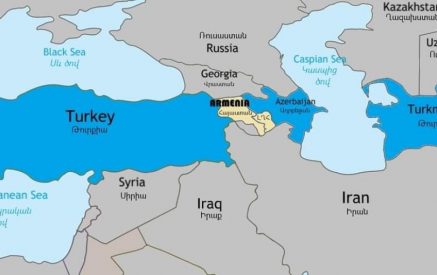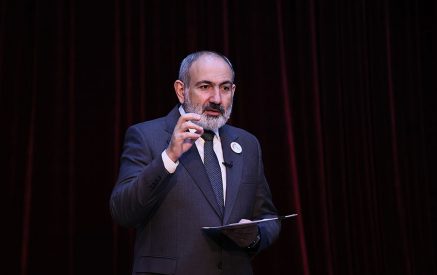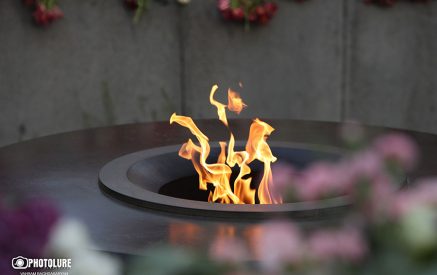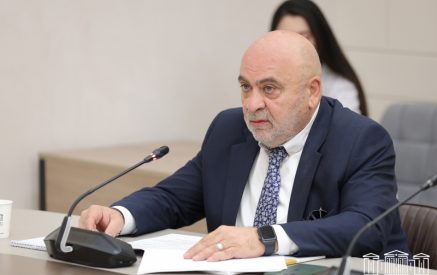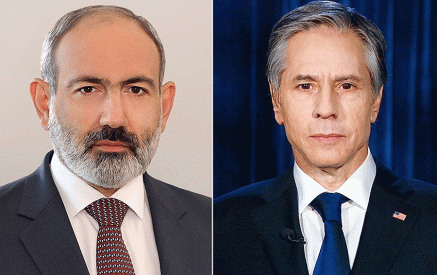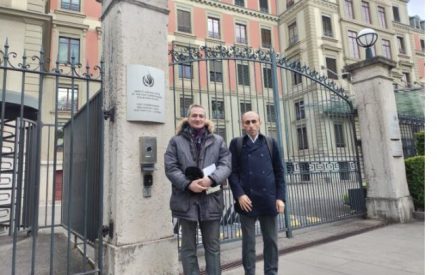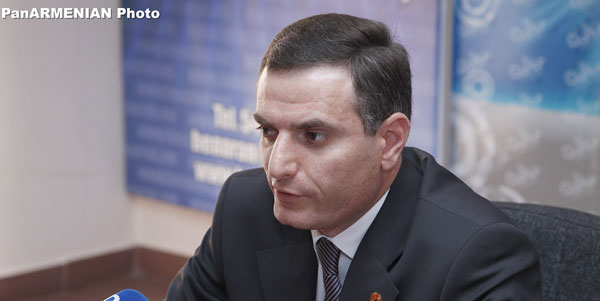This is probably how one can entitle the interview of Vartan Oskanian, a former Minister of Foreign Affairs, given to Regnum, in which, while talking about the Armenian foreign policy, he states that “we” should first of all decide what path we are taking. Certainly, the uncertain attitude of the Prosperous Armenia Party (PAP) recently makes Oskanian state, “We should decide what path we are taking,” but I would ask him not to involve Armenia’s current government and foreign policy in that “we.” Every time I familiarize myself with the fantastic ideas expressed by Oskanian in public, I think: “And what makes the former foreign minister say things that will bring about at least bewilderment and a strong response? Has Oskanian made a final decision to pull the PAP into the opposition camp?” Yes, perhaps after being pro-government for a long time, playing a mixed alternative requires a new set of approaches and instruments, but it by no means justifies doubting every step taken by the government and slandering it in the process. I want to tell Mr. Oskanian that in the near future, as in the past 5 years, Armenia will take an initiative course, the essence of which the person who had been a foreign minister for 10 years “didn’t try” or “didn’t wish” to understand, continuing to praise his Oskanian complementarianism instead. Complementarianism, which Oskanian described in one of his “lectures” in the following way: “Armenia refuses to choose between the global and local partners, instead, it takes into account the interests of all those global and local forces.” In this case, it would be better just to use the well-known word “spinelessness” or actually “mess” instead of the pompous word “complementarianism.” Labeling different foreign courses of independent Armenia, Oskanian tries to use terms to give a meaning and an ideological basis to those, forgetting to pay attention to the processes themselves. Can a state that has a security problem give up on having a strategic partner or adhering to a certain geopolitical orientation? One cannot act, taking into account not only one’s own interests, but also the interests of all the other “players,” juts to meet challenges on one’s own ground. Labeling the foreign policy, you neither give it an ideological basis nor guarantee its success. While talking about different political orientations, the majority of experts from Armenia, as well as worldwide, describe Armenia’s multidirectional foreign policy as successful these days. Nowadays it is also described as a unique model, which gives strong guarantees of stability and long-lasting partnership. For example, talking about the Artsakh conflict, Oskanian states that one cannot wait until Azerbaijan will resolve the conflict militarily. Certainly, it is so, and that is the reason why the Armenian government has made every effort to eliminate the consequences of the stagnation in negotiations during the Oskanian decade. As opposed to the discrepant options of settlement and the difference between the mediators’ positions that existed in those years, in the past five years, there has been and continues to be one scenario of settlement based on the requirement to maintain peace and the demand to give Artsakh a right to self-determination. As a result of being consistent with the same approach, we have been able to achieve a common position among the mediators, moreover, we have made Azerbaijan sign all that, and not just once. As to the obscurity that existed during Oskanian’s tenure, you can familiarize yourself with that by reading the infamous statements made by him, as well as a set of international organizations. Along with that, steps are taken that aim at recognizing the independence of Artsakh. The Armenian state has been recognized by states of the US and Australia, friendship groups with Artsakh have been established in the parliaments of Lithuania and France, and high-ranking officials of different countries have visited Artsakh. As for the relations with the CSTO, we must remind that in the past five years, in particular, Armenia has materialized its membership of the CSTO thanks to multifold treaties, establishment of quick reaction and anti-crisis forces and meeting mutual obligations. Let us note that the mutual cooperation between Armenia and NATO hasn’t been damaged because of that, on the contrary, it has been enhanced, about which NATO officials have also stated. Oskanian’s assessments of the relations with Russia arouse suspicions about his abilities to make adequate assessments. A person who hasn’t been able to organize at least one official visit between the geopolitical partners, Armenia and Russia, talks about the coolness of mutual visits. Only in 2010 and 2011, i.e. during the current government’s term, did such visits come true. In order that using his traditional inconsistency, Oskanian doesn’t try to drift and say that the level of relations is not determined only by visits, let us add that the military-political cooperation with the geostrategic partner has also gained momentum in recent years, essential changes strengthening Armenia’s security have been made in the treaty on the Russian military base, military-industrial cooperation has been established, an agreement has been reached on building the new unit of the nuclear power plant, and the total trade between the states has exceeded 1 billion. Oskanian describes the current foreign policy of Armenia as not enough public, stating as if the position of the Republic of Armenia is not expressed clearly on different platforms these days. I think that it should be clear to a diplomat who deems himself rather experienced that while assessing the work of the current officials, in diplomacy, more than in any other field, one should be guided by the steps that are taken and not make public statements that often aim at meeting the internal demand. And in terms of the steps that have been taken, declaring the vital national interests of the Republic of Armenia as its pillar in recent years, our foreign policy has stood out for its balanced, active and initiative attitude in all directions. It is no accident that it was hard for the former foreign minister to mention any specific step, with which he didn’t agree, or which, according to him, contradicted the interests of the Republic of Armenia. It is hard for him, because sober assessment of the situation shows that at present a dialogue has been established with all partner countries at the highest possible level. Oskanian has probably forgotten that in the not so distant past, his press secretaries and colleagues would try to clarify the inconsistent comments of their own minister, which would repeat with enviable regularity. No one forgets his weakness for the phrase “occupied territories,” which he used more than once, although it was further explained by mistranslation. Oskanian’s assumptions about dilemmas as if Armenia has to choose between the Russian Federation and the West, Iran and the EU, Georgia and Russia are surprising. I am under the impression that Oskanian has just lost the sense of time and gives interviews, being at the beginning of the 2000s. Armenia is one of those unique countries that were able after the 2008 war to be useful for the sides in that indescribably difficult situation thanks to its right policy, to ease the consequences of the conflict, and we have also contributed to the current normalization of the relations. The constructive relations with Iran have continued as usual, and the unprecedented convergence between Armenia and the EU within the framework of the Association Agreement and the Eastern Partnership, in which Armenia has made such progress that even the most optimistic European official couldn’t have imagined, hasn’t been able to prevent that. Criticizing the country’s foreign policy in the process of struggling for power – even at the level of local self-government – is an acceptable tactic and cannot seem surprising. It is also not surprising that one tries to do that opposing the untroubled and nostalgic past to the vague present. Perhaps the lack of consistency and scrupulousness in that criticism is what surprises. Otherwise, how can one explain that Oskanian blames the government for not pursuing the policy aimed at opening the border and establishing diplomatic relations with Turkey in parallel with the demanding policy toward Turkey? Were the Armenia-Turkey negotiations initiated by Armenia not testimony to this principle’s practical realization? By the way, as opposed to the international community, Mr. Oskanian responded to that same process with severe criticism, forgetting what results he had achieved during his meetings with the foreign ministers of Azerbaijan and Turkey, although who knows what Oskanian was talking with them about? This also testifies to the fact that at least at the present period of time, the priority in the foreign minister’s analyses is not objective assessment of the situation and putting forward alternative solutions, but just discrediting the current government’s policy at any cost and creating happy memories of one’s own activities based on that. Although one can talk for hours, comparing the incomparable former and current foreign political courses, but I would suggest that before communicating his assumptions and wishes to the press next time, the former foreign minister make up his mind “what path they are taking.” One cannot refuse all the time. Psychologists know quite well what serious consequences this complex causes.
ARTAK ZAKARYAN
Chairman of the National Assembly Foreign Relations Standing Commission
Aravot Daily

